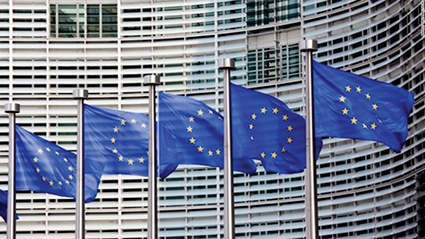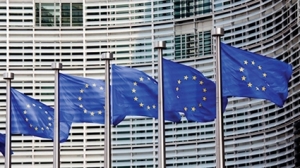EU Is Ready to Work with New parliament of Georgia
In the recent Foreign and Security Policy 2016 report of the European Council, the European Union (EU) expressed readiness to work with the new, democratically elected parliament of Georgia and called on all MPs of the new parliament to work together for Georgia’s interests.
The document was published on October 17 and focuses on continuing the quest for solutions to the acute crises in the EU's neighborhood, whilst protecting and defending human rights, and on building and strengthening peace and stability globally.
The EU welcomed the October 8 parliamentary elections in Georgia, which, according to the report, were held in a generally peaceful and orderly way.
“Besides some incidents of violence near and in polling stations, the preliminary assessment of the OSCE/ODIHR Election Observation Mission found the elections to be competitive, well-administered and respectful of fundamental freedoms,” the document reads.
Also, the EU looks forward to working with the democratically elected new parliament and government once the electoral process is completed, as the second round of elections is to be held in 50 single-mandate constituencies on October 30.
“We call for all representatives elected to the new parliament to work together in the interests of Georgia,” the report says.
Moreover, the EU expressed its readiness to support Georgia's efforts to overcome the consequences of conflict in Georgia's breakaway regions of Abkhazia and South Ossetia, including through the activities of the EU Monitoring Mission (EUMM) and the EU Special Representative (EUSR) for the South Caucasus and the crisis in Georgia.
“The EU will remain firmly committed to its policy of supporting Georgia's sovereignty and territorial integrity within its internationally-recognized borders,” the report reads.
According to the document, a democratic, stable and prosperous Eastern Neighborhood (EaP) will remain a priority for the EU.
EaP is an initiative of the European Union governing its relationship with the post-Soviet states of Armenia, Azerbaijan, Belarus, Georgia, Moldova, and Ukraine, intended to provide an avenue for discussions of trade, economic strategy, travel agreements, and other issues between the EU and member states.
The document reads that in its relations with Georgia, Moldova and Ukraine, the EU will continue to focus on the implementation of the respective Association Agreements (AAs), which will help to steer reform processes in these countries. The AA entered into force on July 1, 2016 for Georgia.
Photo: Foreign and Security Policy 2016 of the European Council reads that the EU is ready to cooperate with Georgia’s new parliament.
Thea Morrison












